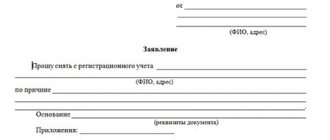It is not uncommon for more than one person to own a residential property. And each of them has legal rights to their part of the share. However, in addition to rights, there are also a number of obligations that they must be aware of and strictly observe. This will help avoid disputes and conflicts when making transactions with your share of property. All rights and obligations of owners are enshrined in the Civil Code of the Russian Federation.
Shared ownership arises as a result of privatization, inheritance and other situations when there is more than one owner of a particular real estate property.
Property may include:
- to the divisible, when it is not difficult to determine and isolate the shares;
- to indivisible, more often in the case of inherited property, and also when this is technically impossible or not legally permitted.
Legislatively, the number of apartment owners, i.e. its shares are not limited.
What does the owner have the right to do and what responsibilities does he have?
Residential property owners are required to:
- Maintain housing in a condition suitable for habitation.
- Bear the costs of its maintenance and maintenance of common property.
- Do not violate the rights and interests of neighbors.
- Once every 3 months, provide management company employees with access to the premises to check the functionality of individual metering devices.
Important! Also, owners of private houses have an additional obligation to enter into an agreement with a service organization for waste removal, and owners of communal apartments undertake to pay the costs of maintaining public premises.
To effectively fulfill their duties, owners of apartments in apartment buildings have the right to independently choose the method of managing the apartment building and exercise control over the activities of the responsible legal entity (MC or HOA).
In addition to the costs of paying for housing and communal services and home maintenance, home owners are also required to promptly pay contributions to the capital repair fund (in accordance with part 2 of paragraph 2 of Article 154 of the Housing Code of the Russian Federation).
Owners of residential premises and shares also have the right:
- Sell, donate, exchange and transfer real estate by inheritance.
- Live in the premises with members of your family (Article 17, Parts 2 and 4 of the Housing Code of the Russian Federation).
- Register third parties on the territory registered as property (Article 31 of the Housing Code of the Russian Federation, Article 20 of the Civil Code of the Russian Federation, Federal Law No. 5242-1, Article 2).
- Transfer housing to third parties under a lease agreement or free use agreement.
- Draw up commercial lease agreements with legal entities.
- Carry out professional activities in your real estate that will not violate the rights and interests of other residents and sanitary standards (Article 17, Parts 2 and 4 of the Housing Code of the Russian Federation, Article 54 of the Civil Code of the Russian Federation).
Sell the entire apartment
The benefit from selling the entire shared apartment at once is much higher than when selling it in parts. The owner loses up to 30% of possible profits, since it is difficult to find a buyer for the share. Such real estate may be of interest only to housing resellers, and they, as a rule, enter into transactions at a low price.
How much does a share in an apartment cost? Transactions with apartment shares have always been difficult and quite confusing. Last year, the rules of the game here were again >> It is in the interests of the share owner to convince the co-owners to sell the entire apartment. In most cases, the room is divided into parts between relatives, and it is unlikely that they will want to intersect with strangers in the kitchen or bathroom. Therefore, the option of a general sale, if necessary, would be the most convenient solution for all parties.
“If the neighbors don’t want a new person or a whole family to move in, especially if no one has lived in the room for a long time, during viewings they put on shows simulating psychopathologies and alcoholism. Stories about bedbugs, mice and other unwanted “neighbors”. People’s imagination in these cases is limitless,” noted Deputy Director Lyudmila Ermolaeva.
There really are enough disputes and conflicts in shared apartments. Relatives or simply neighbors can become bitter enemies due to joint ownership of property. In such cases, it would probably be easier to sell the share to another co-owner. True, he is not always ready to pay. In addition, it also happens that the owner of a small share has to give his share to the co-owner literally for next to nothing, just to solve a pressing housing issue.
By the way, there is a downside. According to Article 252 of the Civil Code of the Russian Federation, the owner of a small share may even be forced to sell it against his will. But this happens in cases where the share is insignificant and the owner does not live in the apartment.
What is the list of supporting documents?
- Agreement for the transfer of housing into private ownership (drawn up if ownership is acquired as a result of the privatization process).
- A share participation agreement or an agreement on the assignment of rights of claim (done if the apartment was purchased in a building under construction).
- Contract of sale or exchange (if the property was purchased on the secondary market).
- Certificate of paid share (if the owner of the property acquired it through membership in the cooperative).
- Certificate of inheritance (if the apartment was transferred to the new owner by inheritance).
- Deed of gift (if the property was transferred as a gift).
- Agreement on division of property (done in the event of division of jointly acquired property of spouses during divorce proceedings).
- Court decision (if the property of spouses or other claimants was divided through a lawsuit).
- Mortgage agreement (if borrowed funds were used).
- Lifetime maintenance agreement with dependents (if the property was acquired under annuity obligations).
Shared ownership of housing
Shared ownership of an apartment may arise under the following circumstances:
- When several heirs inherit an apartment.
- When privatizing an apartment for all residents registered in it.
- Finally, when dividing an apartment during a divorce.
This can only be done in private individual housing construction houses, and there are many cases of dividing a house into several separate apartments. For a city apartment, when dividing, we can only talk about “ideal shares.”
How many properties can one person own?
According to the provisions of paragraph 2 of Art.
213 of the Civil Code of the Russian Federation, the quantity and value of real estate that may be in the possession of citizens and legal entities is not limited in any way, except in cases where such restrictions are established by the law of the Russian Federation for the purposes provided for in paragraph 2 of Article 1 of the Civil Code of the Russian Federation. Thus, the question of whether it is possible to own two or even several apartments at the same time is removed: a person has the right to be the sole owner of not only two, but any number of real estate objects at the same time.
The right to purchase shares by owners
If there is no desire to sue the co-owners and risk selling it, the owner must not only send his co-owners an offer to purchase his share in writing, but also make sure that he has confirmation that they received this offer.
To do this, you can either submit the proposal in 2 copies with a signature on receipt on the second, or use the Russian Post service “Registered or valuable letter with acknowledgment of receipt.”
In these ways, you will protect yourself from dishonest steps of co-owners who may declare that you have not received any notification of the sale.
In a share exchange agreement, the advantage of co-owners is observed in the same manner.
What are the restrictions on the use of the property?
With equity participation
If an apartment was privatized by several citizens, its area was divided between them in equal shares, which means that the division also concerns the rights and obligations of the owners. Each of them:
- will be able to use the living space for living;
- is obliged to pay for housing and communal services and the maintenance of the house;
- must promptly pay the housing tax established by the legislation of the Russian Federation.
Pensioners may be exempt from paying taxes if the property they have is the only one.
If real estate belongs to several citizens at once, certain restrictions on their rights are imposed on them. According to the norms described in Article 247 of the Civil Code of the Russian Federation, the use and ownership of real estate in shared ownership can only be carried out if a decision is agreed upon between all shareholders.
- You can use real estate that has more than 1 owner only with the consent of all owners. If the issue cannot be resolved peacefully, the case is referred to the court.
- The owner of a share in an apartment has the right to dispose of housing only in proportion to his share. If for some reason this is impossible, he has the right to request compensation from the remaining shareholders.
Important! Without the consent of the owners of other shares, the owner does not have the right to move anyone else into the apartment (with the exception of minors, based on the provisions of Article 20 of the Civil Code of the Russian Federation).
For a sole owner
- The owner has the right to register any citizen. However, in some cases the reverse process (deregistration) cannot be carried out.
- In order to discharge a minor citizen, it is necessary to obtain the consent of the guardianship and trusteeship authorities.
- It is impossible to deprive of registration and evict from an apartment a citizen who lives on the basis of a testamentary refusal. A person who signs a waiver of his share in an apartment due under a will has equal rights and obligations with the owner. If an additional agreement has not been drawn up, the person who renounced his rights to real estate actually remains the same owner of the home.
Step-by-step instructions for allocating a share in court
A person who is faced with housing disputes for the first time most often has no idea where to start. We have prepared step-by-step instructions for you, which are designed to simplify the procedure for establishing the right to a share of property.
- The first thing you need to do is decide why you need the allocation. Then you will decide whether you want to allocate a portion in kind or in monetary terms.
- Next, you need to understand whether it is technically possible to isolate a part in kind, or you will have to be content with money; what kind of allocation options are generally possible in this case; how many shares will there be and what size are they; how much your part of the property will cost on the real estate market. The answers to these questions will be given by an expert assessment.
- Once you have decided why you need the allocation, you need to try to discuss it with other owners of the premises. If you managed to agree and sign a share agreement, then the main process is completed. And if not, then move on.
- Drawing up a statement of claim, preparing a package of documents, calculating the amount of state duty and paying it.
- Submitting a statement of claim and documents to the court. Beginning of the case and court hearings.
- Receipt of a court decision that has entered into force.
- Registration of changes in Rosreestr and BTI.
If the court decision contains even the slightest change in the ratio of shares and ownership, then each owner must record this with government agencies.
Statement of claim
Drawing up a statement of claim will not be difficult if you have all the necessary information about the owners and the property. You can submit statements of claim and simply fill them out. For example, the Garant website presents a large library of samples. The application must contain the following information:
- name and address of the court to which the claim is filed;
- personal information of all owners and participants in the case;
- detailed information about the property: address, total area, number of rooms, number of owners;
- title documents for the apartment;
- an indication of pre-trial means of resolving the dispute;
- data on expert assessments;
- list of attached documents;
- date;
- plaintiff's signature with transcript.
A package of documents that must be attached to the statement of claim: the plaintiff’s passport details, an extract from the Unified State Register of Real Estate, confirmation of rights to own real estate, a receipt for payment of the state duty. The number of copies of the claim must correspond to the number of owners.
The consideration of the case in court will take from two to six months. But the legal process itself is not all the time that may be needed for the judicial allocation of a share. It will take time for examination and assessment, for studying the statement of claim, pre-trial hearings, directly for court hearings, as well as for a possible appeal of the court decision.
How to become a participant in property relations at a young age?
Any citizen of the Russian Federation has the right to own real estate, regardless of age. However:
- Those who have not reached 14 years of age do not have the right to manage housing - their parents or legal representatives act on their behalf.
- Children aged 14 to 18 years can dispose of their property, but only with written permission from their parents, adoptive parents or guardians.
Is there a duty to register?
Any citizen of the Russian Federation has the right to independently decide where he intends to be. This right is enshrined in Federal Law No. 5242-1 “On the right of citizens of the Russian Federation to freedom of movement” dated June 25, 1993. At the same time, there is no indication in any legal act that the owner of the property is obliged to register in the housing that belongs to him as property.
Regardless of how the owner acquired the rights to real estate, he is obliged to respect the interests of other residents of the apartment building and the legal standards for living in an apartment building. In addition to rights, all owners also acquire a number of responsibilities, failure to fulfill which can lead to unpleasant consequences, including eviction.
If you find an error, please select a piece of text and press Ctrl+Enter.
Sale of a shared apartment if the co-owner refuses to sell
Let us assume that several persons live in an apartment, each of whom has the right to their share of the property. If they want to sell the apartment, and one of them is against it, what should they do?
In this situation, the owner of the largest share will have the decisive voting right and, accordingly, if the opponent’s share is the largest, then it will be impossible to do anything in this situation.
But if the opponent’s share is small, you can make an attempt to forcibly buy out his share, for which you file a lawsuit in court, justifying your demand by the small size of his share, you must ask the court to oblige him to transfer his share to the ownership of the remaining owners for material compensation. The court will not be able to fulfill this requirement only if the opponent of the sale permanently resides in this apartment.










